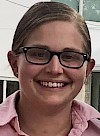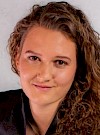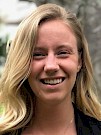AASP Newsletter - July 2020
Student Social Justice Forum Recap
 Shelby Anderson |
 Barbora Kijasova |
 Sharon Ku |
 Lindsey Miossi |
 Farhan Saikh |
 Tess Palmateer |
 Gagandeep Singh |
Barbora Kijasova, AASP International Relations Committee
Sharon Ku, AASP Diversity Committee
Lindsey Miossi, AASP Diversity Committee
Farhan Saikh, AASP Diversity Committee
Tess Palmateer, Co-Chair, AASP Student Social Justice Initiative
Gagandeep Singh, Chair, AASP Student Social Justice Initiative
On June 3, 2020, the AASP Diversity, International Relations, and Advocacy Committees, along with the Student Social Justice Initiative hosted the 2020 Student Social Justice Forum. This was a free virtual event designed to foster personal and professional growth in students and early career professionals in the field of sport and exercise psychology. The forum encouraged dialogue around diversity, inclusion, social justice, and advocacy issues within applied sport and exercise psychology settings.
For interested readers, the 2020 AASP Student Social Justice Forum can be seen here.
The forum consisted of five presentations from a diverse panel of speakers from the field. The first guest speaker, Dr. Angel Brutus, 2020 AASP Early Career Practitioner Award recipient, presented, “Social Justice Counseling in Sport in the Midst of the Myth of Meritocracy.” The presentation focused on the goal of promoting access and equity for athletes and members of the sport system. Dr. Brutus addressed how the myth of meritocracy applies to the world of sport and black athlete empowerment. Dr. Dolores Christensen then shared her presentation, “What Instagram Is Teaching Me about Anti-Racism: Critical Practices for All White People.” She challenged the idea of White-identifying persons referring to themselves as “not racist” or “color-blind," encouraged all people to adopt anti-racist practices, and shared valuable print and social media resources on systemic racism and racial injustice.
Drawing from a recently published article entitled, “A Renewed Call to Queer Sport Psychology” (Krane & Waldron, 2020), Dr. Vikki Krane followed with a critique of where AASP is as an organization in terms of diversity, inclusion, and social justice. They concluded that despite the changes like the creation of the Diversity Course and the Diversity and Inclusion executive board position, AASP still has a way to go in promoting social justice within the Association; particularly for its LGBTQ+ members. In line with Dr. Krane’s call for queer advocacy, Dr. Lani Lawrence addressed the needs of LGBTQ+ identified athletes in her talk, “Building an Inclusive Support System within Sport.” Drawing from her professional experiences as a former clinical and sport psychologist at the University of Southern California and now Director of Wellness and Clinical Services at the New York Giants football team, she articulated the importance of cultural competence, authenticity and attending to the wellbeing of LGBTQ+ athletes. During her presentation, “Building Bridges: International Perspectives,” Dr. Cristina Rolo discussed her experiences working with international populations and building bridges between the consultant, athlete, teams, and sport organizations. The forum was followed by a Q&A where panelists addressed questions from the audience.
Initially, the forum was to be followed by roundtable discussions and the IGNITE program. The first roundtable was designed to discuss issues related to LGBTQ+ social justice and advocacy within applied sport and exercise psychology settings. The second roundtable was to discuss international relations and social justice within applied sport and exercise psychology from a global perspective. The IGNITE Program was created to offer students and early career professionals of color who hold various cultural identities (e.g., LGBTQQI, race, ethnicity, class, gender, ability, and religion) with a personal and professional development experience.
The roundtable faculty encompassed: Dr. Hannah Bennett, Assistant Professor at Augusta University; Dr. Vikki Krane, Professor at Bowling Green State University; Dr. Lani Lawrence, Director of Wellness and Clinical Services for the New York Giants; Dr. Sae-Mi (Sammy) Lee, Assistant Professor at California State University, Chico; Dr. Christina Rolo, Co-founder of Rolo Mental Coaching; and Shameema (Shams) Yousuf, Founder of Empower2Perform. The IGNITE program faculty was comprised of Dr. Stephany C. Coakley, Senior Associate Athletic Director for Mental Health, Wellness and Performance at Temple University; Dr. Latisha Forster, Professor at Rutgers University; and Dr. Aaron Goodson, Assistant Director of Counseling and Sport Psychology at Mississippi State University. Due to the timing of presentations and the richness of the discussions, the organizers decided to continue the large group discussion rather than break into smaller groups. During this time, the IGNITE program and roundtable faculty program joined and answered questions from the audience. At times, the discussions were intense but respectful, brave, and transformative. At all times, the discussions were crucial (Patterson et al., 2002).
Overall, it was an extraordinary program that brought together a wide range of students and early career practitioners looking for guidance, support, and the space to discuss vital topics related to social justice within applied sport and exercise psychology settings. We plan to hold the forum again in 2021. In line with Dr. Krane’s comments, we believe that one-off events while useful for building awareness, do not promote systemic change. Therefore, it is important that AASP hosts more events that shed light on social injustices within our profession, and the challenges faced by the diverse clients we serve.
References
Krane, V., & Waldron, J. J. (2020). A renewed call to queer sport psychology. Journal of Applied Sport Psychology, https://www.tandfonline.com/doi/abs/10.1080/10413200.2020.1764665?journalCode=uasp20
Patterson, K., Grenny, J., McMillan, R., & Switzler, A. (2002). Crucial conversations: Tools for talking when stakes are high. McGraw-Hill Education.
More in This Newsletter
Use the links below to read more articles in this issue, or return to the table of contents.- Next article: Advocacy Committee Established to Advance AASP & Field
- Previous article: President's Report



